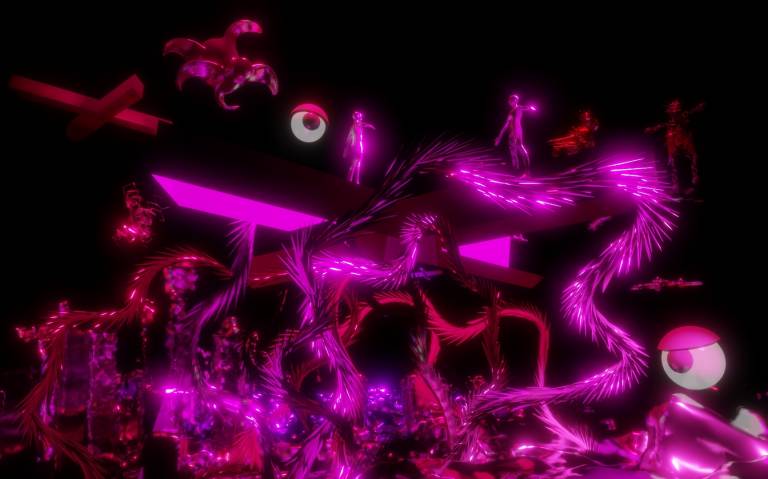Building Integrated Environments: A Cognitive Framework - The Bartlett International Lectures
01 December 2021, 6:00 pm–7:30 pm

This event is free.
Event Information
Open to
- All
Availability
- Yes
Cost
- Free
Organiser
-
The Bartlett School of Architecture
About
Streamed live on The Bartlett School of Architecture's YouTube channel, this event will be a discussion between co-hosts Jenn Leung and Fiona Zisch and speaker N. Katherine Hayles.
This event forms part of The Bartlett International Lectures Autumn 2021.
This autumn and spring, each of the International Lectures will be curated by one of the school's programmes to inspire, invent, imagine, and provoke. This event is curated by Design for Performance and Interaction MArch.
Abstract
Building Integrated Environments: A Cognitive Framework
Building an integrated environment requires a set of assumptions about who or what will inhabit the environment and what are their salient characteristics. This talk will propose a cognitive framework within which humans, nonhumans and technical media are located. While humans may be the only inhabitants that possess consciousness, nonconscious cognition operates in all three participant categories. Operating at a neuronal level inaccessible to consciousness, nonconscious cognition in humans has been demonstrated to perform functions essential for consciousness to operate. It constructs body schema, smooths out small discrepancies in sensory information, and processes information much faster than does consciousness, as well as decodes patterns too noisy and dense for consciousness to discern.
Once we realize that cognition is a much broader capability than consciousness, the way is open to consider how nonconscious cognition operates in computational media as well as nonhuman lifeforms. Wherever cognition occurs, there are possibilities for meaning-making, including with computers and with all biological lifeforms, even those lacking brains or central nervous systems such as plants. Examples will be given of meaning-making as responses to environmental conditions. One of the implications of this approach is that meanings are always specific-specific and milieu-specific, a realization that goes a long way to free us from the limitations of an anthropocentric viewpoint. Closing remarks will include some speculations about what integrated environments might look like if constructed upon these premises, but the audience will be encouraged to engage their own imaginations to fill out the picture.
Speaker biography
N. Katherine Hayles is the Distinguished Research Professor at the University of California, Los Angeles, and the James B. Duke Professor Emerita from Duke University. Her research focuses on the relations of literature, science and technology in the 20th and 21st centuries. Her twelve print books include 'Postprint: Books and Becoming Computational' (Columbia, 2021), 'Unthought: The Power of the Cognitive Nonconscious' (Univ. of Chicago Press, 2017) and 'How We Think: Digital Media and Contemporary Technogenesis' (Univ. of Chicago Press 2015), in addition to over 100 peer-reviewed articles.
Her books have won several prizes, including The Rene Wellek Award for the Best Book in Literary Theory for 'How We Became Posthuman: Virtual Bodies in Literature, Cybernetics and Informatics', and the Suzanne Langer Award for 'Writing Machines'. She has been recognized by many fellowships and awards, including two NEH Fellowships, a Guggenheim, a Rockefellar Residential Fellowship at Bellagio, and two University of California Presidential Research Fellowships. She is a member of the American Academy of Arts and Sciences. She is currently at work on Technosymbiosis: Futures of the Human.
More information
- Find out more about Design for Performance and Interaction MArch
- See the full programme for The Bartlett International Lectures
Image: 'Xalon' by Serra Ozdemir, Jenn Leung, Arshiya Vij
 Close
Close

